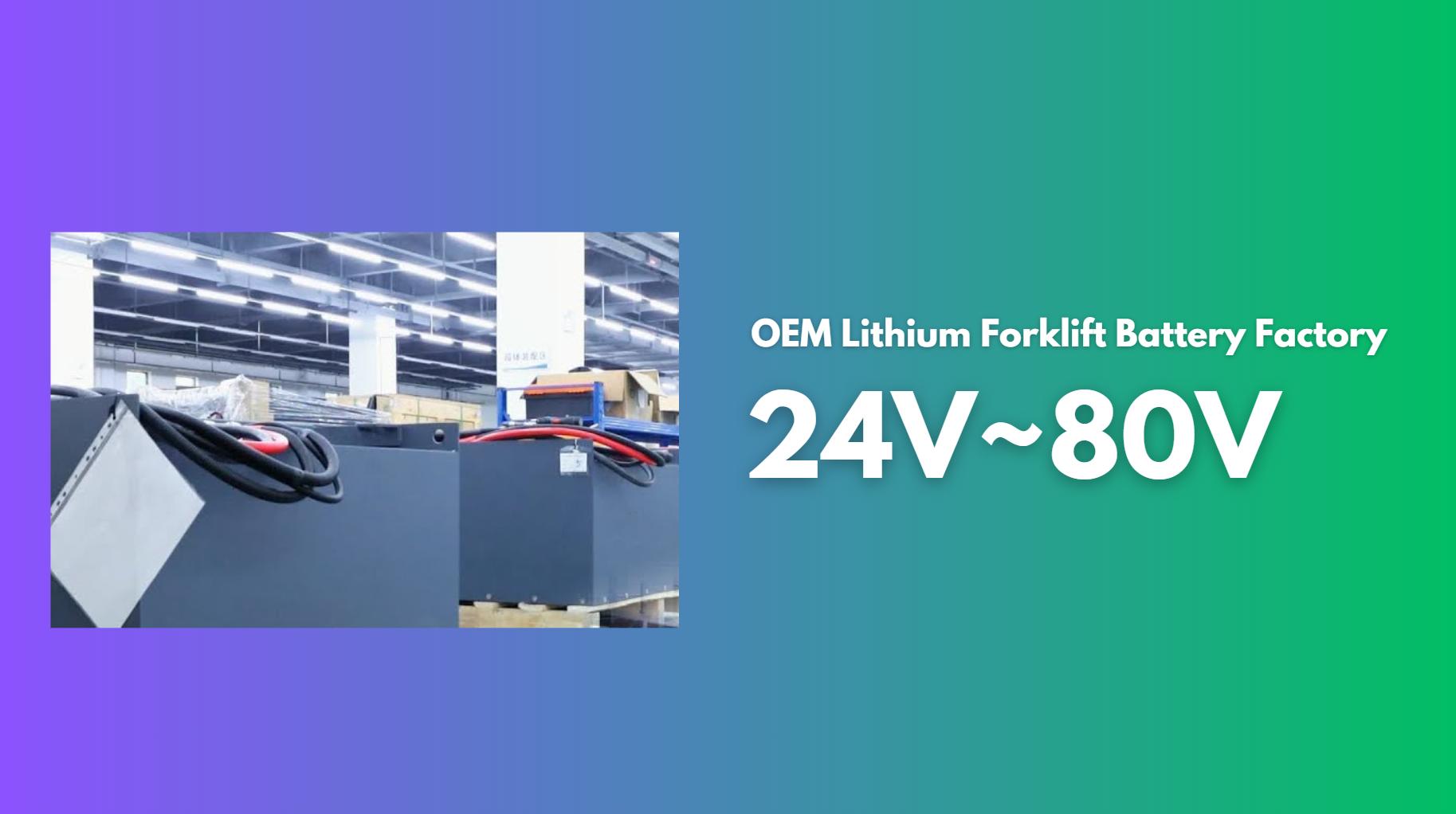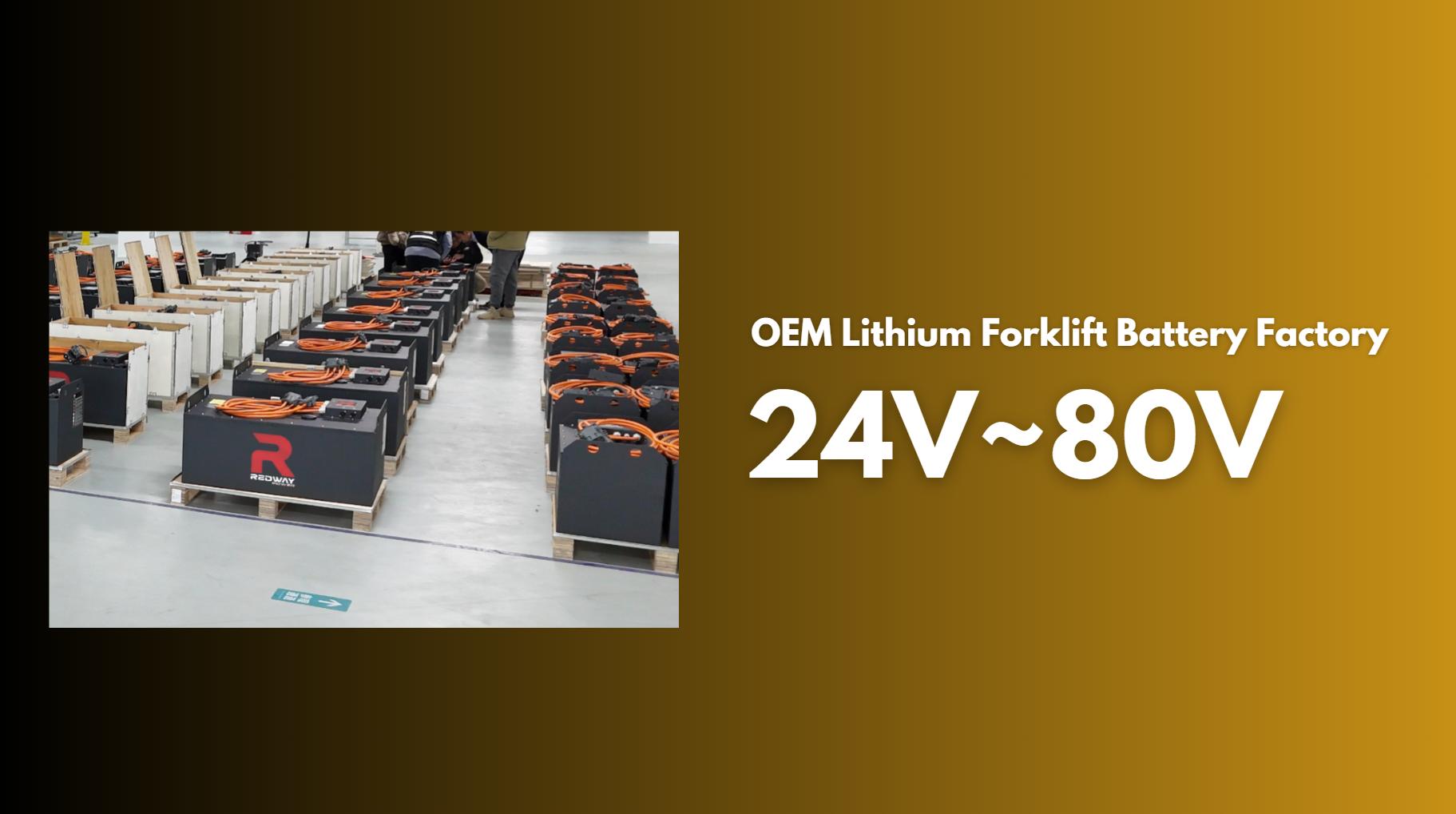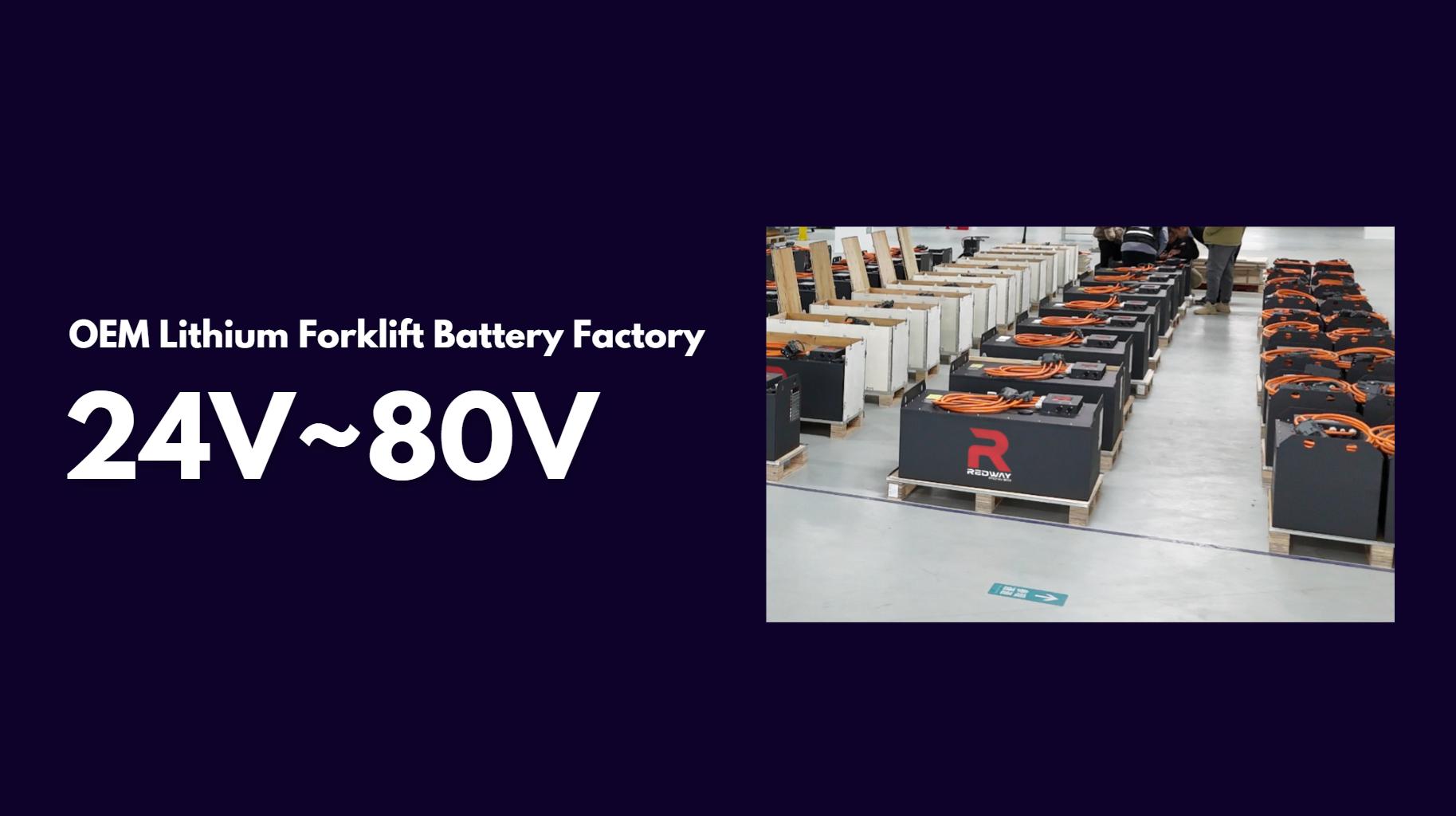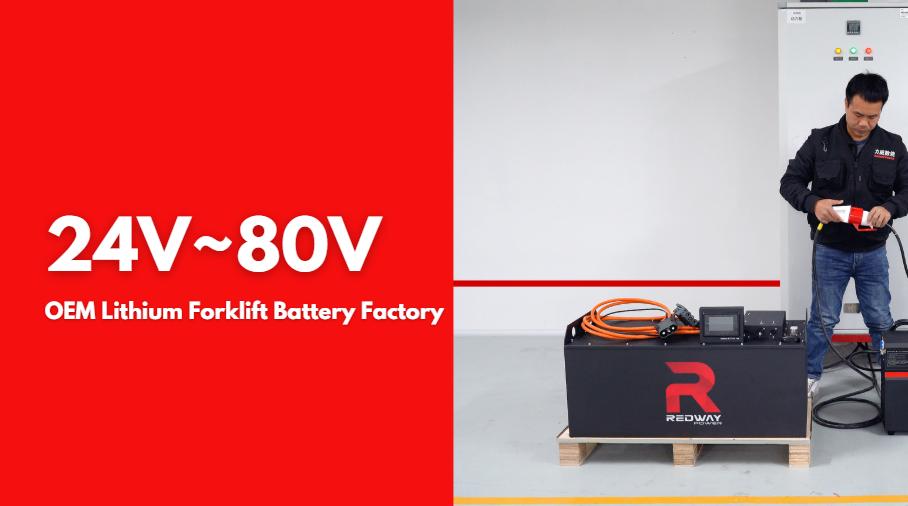The forklift battery market is experiencing strong growth due to rising demand for electric forklifts, improvements in lithium battery technology, and stricter environmental regulations. The market’s compound annual growth rate (CAGR) is expected to stay robust, driven by better battery performance, cost savings, and increasing focus on sustainability.
What Is the Current State of the Forklift Battery Market and Its Growth Outlook?
The forklift battery market is rapidly expanding as industries shift toward electric material handling equipment. Lithium-ion batteries, especially LiFePO4 types, are replacing traditional lead-acid batteries because they offer higher energy density, faster charging, and longer lifespan. Analysts predict a double-digit CAGR for the next five years, propelled by growth in logistics, warehousing, and manufacturing industries.
This growth is fueled by businesses seeking efficient, environmentally friendly solutions to reduce operating costs and emissions. Leading manufacturers like Redway Battery provide OEM lithium battery solutions specifically designed for forklifts, combining smart battery management with durable, safe designs. Government incentives and environmental policies further accelerate the adoption of these advanced energy storage technologies.
How Do Lithium-Ion Forklift Batteries Compare to Lead-Acid Alternatives?
Lithium-ion forklift batteries surpass lead-acid batteries by delivering faster charging, higher energy density, longer cycle life, and reduced maintenance requirements. These advantages improve operational efficiency and reduce total cost of ownership.
Lead-acid batteries, while common, have limitations such as longer recharge times, heavier weight, and frequent servicing needs. Lithium-ion options, including those from Redway Battery, enable opportunity charging during short breaks and eliminate manual maintenance tasks like watering. They also maintain performance over more charge cycles, allowing longer work shifts and fewer battery changes. These benefits are especially important in high-intensity warehouse environments where maximizing uptime is critical.
What Are the Main Factors Influencing the Forklift Battery Market CAGR?
The growth of the forklift battery market is driven by increasing industrial automation, tighter environmental regulations, forklift electrification trends, technological advances, and falling battery costs.
Industrial automation creates a need for efficient, electric-powered forklifts in warehouses and distribution centers. Environmental regulations worldwide encourage companies to reduce emissions by adopting cleaner battery technologies. Breakthroughs in battery chemistry, particularly lithium iron phosphate (LiFePO4), improve safety, lifespan, and energy output. As manufacturing scales up and technologies mature, battery prices continue to decline, making lithium-ion batteries more accessible.
Redway Battery invests heavily in research and development to create safer, longer-lasting lithium battery packs that help businesses capitalize on these market drivers effectively.
Where Are the Largest Markets and Adoption Hubs for Forklift Batteries?
North America, Europe, and Asia-Pacific stand out as the largest markets for forklift batteries due to extensive warehousing infrastructure, booming e-commerce, and strong policies promoting battery-powered forklifts.
In North America, well-developed logistics and distribution networks adopt lithium forklift batteries to meet green operation goals. Europe’s strict emission targets and solid industrial base boost demand for electric forklifts. The Asia-Pacific region experiences fast industrial growth, expanding warehouse space, and increasing forklift electrification.
Redway Battery supports clients in these regions by tailoring energy storage solutions to meet local needs such as climate conditions and intensity of forklift use, ensuring optimal battery performance.
How Is Innovation Shaping the Forklift Battery Industry?
Battery chemistry advancements, smart battery management systems (BMS), and integration with warehouse automation are transforming forklift power solutions.
Smart BMS technology enables real-time monitoring of battery health, temperature, and charge status, improving safety and enabling predictive maintenance. Redway Battery incorporates the latest BMS in their production lines to deliver high-quality, customizable OEM solutions. Innovations also include modular battery packs that allow scalable capacity and refurbishment options, helping businesses optimize battery lifecycle and reduce operating expenses.
What Are the Main Challenges Facing the Forklift Battery Market Today?
Challenges include the high upfront cost of lithium batteries, safety concerns, recycling and disposal complexity, and infrastructure needs for charging.
The initial investment in lithium batteries is still higher than traditional lead-acid systems, causing hesitation for some operators. Lithium battery safety requires strict quality and monitoring standards to reduce risks such as thermal runaway, and manufacturers like Redway Battery follow ISO 9001-certified processes to ensure this. Some regions still lack adequate charging infrastructure, requiring capital expenditures for charger installation. Battery recycling and disposal systems need to be advanced to handle growing volumes responsibly, minimizing environmental impact.
Can Redway Battery Customize Forklift Battery Solutions to Specific Industry Needs?
Redway Battery offers full OEM/ODM customization, allowing clients to get battery packs designed to precise performance, size, and safety specifications.
Customization helps maximize forklift battery efficiency for various applications. Redway Battery’s engineering team works closely with customers to optimize voltage, capacity, form factor, and communication interfaces, ensuring perfect fit for different forklift models and integration with warehouse management systems. Their comprehensive after-sales support and advanced manufacturing capabilities enable businesses to gain competitive advantages through tailored, durable, and reliable lithium battery packs.
How Does Redway Battery Contribute to Sustainability and Cost Efficiency in the Forklift Market?
Redway Battery’s LiFePO4 batteries promote sustainability by lowering carbon emissions, reducing battery replacement frequency, and cutting energy usage while delivering cost savings.
LiFePO4 chemistry avoids harmful heavy metals, offering an environmentally friendly alternative to lead-acid. Its longer lifecycle reduces waste and disposal challenges. Higher recharge efficiency decreases overall energy consumption, and fast charging minimizes downtime, allowing more productive operations. These factors help companies meet environmental goals and improve financial performance, supporting a greener, efficient supply chain.
| Feature |
Lithium-Ion (LiFePO4) |
Lead-Acid |
| Energy Density |
High |
Low |
| Charging Time |
1-3 hours |
8-12 hours |
| Cycle Life |
2000+ cycles |
500-1000 cycles |
| Maintenance |
Minimal |
Frequent watering/maintenance |
| Weight |
Lighter |
Heavier |
| Safety |
High (with BMS) |
Moderate |
| Environmental Impact |
Low (recyclable) |
Higher due to lead content |
| Region |
Estimated CAGR (%) |
| North America |
12.5 |
| Europe |
11.8 |
| Asia-Pacific |
14.2 |
| Rest of World |
9.5 |
Redway Expert Views
“Forklift electrification powered by advanced lithium battery technology is revolutionizing material handling by enhancing efficiency and sustainability. At Redway Battery, we deliver innovative LiFePO4 battery solutions designed for safety, durability, and high performance. Our customized OEM battery packs help warehouses and logistics centers reduce downtime and meet environmental commitments, positioning them for future success.”
— Li Wei, Head of R&D, Redway Battery
Conclusion: What Should Industry Stakeholders Remember About the Forklift Battery Market?
The forklift battery market is growing strongly due to increasing demand for clean, efficient power solutions. Lithium-ion, especially LiFePO4 batteries, surpass traditional lead-acid options by improving uptime, reducing maintenance, and supporting sustainability. Redway Battery’s customizable, high-quality OEM packs cater to global needs, offering businesses scalable, safe, and cost-effective energy storage solutions. Investing in lithium battery technology and charging infrastructure will be key to staying competitive in evolving logistics and material handling environments.
FAQs
Are lithium forklift batteries safe for continuous industrial use?
Yes, LiFePO4 lithium batteries are safe when paired with advanced battery management systems, minimizing risks like overheating.
How long do lithium forklift batteries last compared to lead-acid?
Lithium batteries usually last over twice as long, achieving more than 2000 charge cycles versus 500-1000 for lead-acid.
Can existing forklifts be retrofitted with lithium batteries?
Yes, many existing forklifts can be retrofitted. Redway Battery customizes packs to ensure compatibility and performance.
What charging infrastructure is needed for lithium forklift batteries?
Fast chargers designed for lithium batteries enable 1–3 hour recharges and support opportunity charging during breaks.
How does investing in lithium forklift batteries affect operational costs?
Despite higher upfront costs, lithium batteries reduce maintenance and downtime, lowering overall total cost of ownership.





